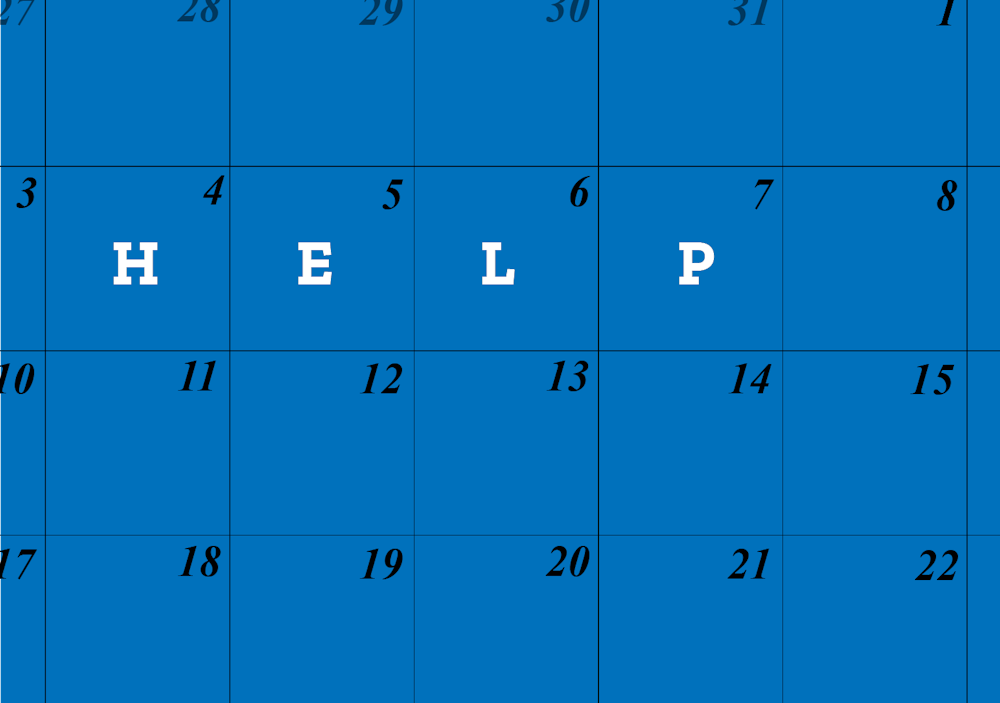Everyone is eagerly waiting for Thanksgiving break, which will be the first full week without the stress of classes since August. Although it’s been a long time coming, it was planned well, and it happens at a good time with only about two weeks of class after break. It will allow students to step away from their online classes before the stress of finals.
Even though the break is late, at least there is a break built into this semester. Amid the COVID-19 pandemic, presidential election and even just navigating everyday classes online, a break is long overdue. This begs the question: What will students do next semester without any breaks?
IU President Michael McRobbie announced May 27 there would not be a fall or spring break in the 2020-21 school year. Sixteen consecutive weeks of instruction is too much to ask of students, and this is happening during a pandemic and through primarily online instruction. These stressors are reason enough to add additional breaks and more leeway, not make the semester more intense and grueling than before.
There is a reason behind taking away spring break, which is often a time of lots of traveling and mass gatherings. The university cannot ensure students will remain safe and responsible while away from campus for a prolonged period, which is a legitimate concern for the safety of everyone on campus.
While there’s a valid purpose behind not offering any weeklong break next semester, there is no reason to deprive students of breaks throughout the entirety of the semester.

A weeklong break from instruction is not the only way to structure a break into the semester. Instead of one continuous break, IU can offer its students one or two day breaks from classes multiple times during the semester. For example, the University of North Carolina has a plan that offers its students five mental health days spread throughout the semester.
UNC’s plan includes five pre-announced mental health days, which are Feb. 15 and 16, March 11 and 12 and a universitywide “holiday” on April 5 where no classes will take place. All students will get these preplanned “wellness” days instead of the traditional spring break.
By offering students days without classes, it gives them some much needed time away from the stressors and repetition of online classes. Students can only put in so much work without getting burnt out.
With shorter, but more frequent breaks students will have the opportunity to recharge without mass exodus from campus. By changing the structure of the breaks, IU would be able to both give students time away from school and do so in a safe and responsible way.
The mitigation testing implemented on campus has been a great way to both prevent the spread of the coronavirus and hold students accountable. This doesn’t mean we should put undue stress on the preventative measures this system provides, but it’s put in place for this exact reason. The role of mitigation testing is to identify and isolate students who either have COVID-19 or have been exposed to it.
IU has measures in place to moderate the spread of the virus, but the university is taking little action to alleviate its students' struggles with mental health. The brunt of preserving mental health and well-being falls on individual students.
Students have the opportunity to schedule appointments with Counseling and Psychological Services, but the limits on students’ ability to utilize this service can prevent them from getting long-term help if needed. Classes being graded on an A-F scale as opposed to a pass/fail option causes unnecessary worry and anxiety with all the other external pressures in our world. With instruction being primarily online, students face issues such as Zoom fatigue.
The addition of shorter breaks scheduled into the semester will display IU’s commitment to safeguarding its students’ mental health. Students need scheduled breaks now more than ever before. Taking them away is unnecessary, especially with responsible ways such as UNC’s plan to incorporate them into the spring semester.
IU must follow UNC's lead and include mental health days in the spring semester. These shorter mental health days can make a world of difference in many students' busy schedules. Students deserve these breaks. They are living through challenges previously unmet. They need time off, and they should not be pushed endlessly.
Aidan Kramer (she/her) is a freshman studying microbiology and environmental science. After graduating, she plans to attend medical school and pursue a career in pathology.






